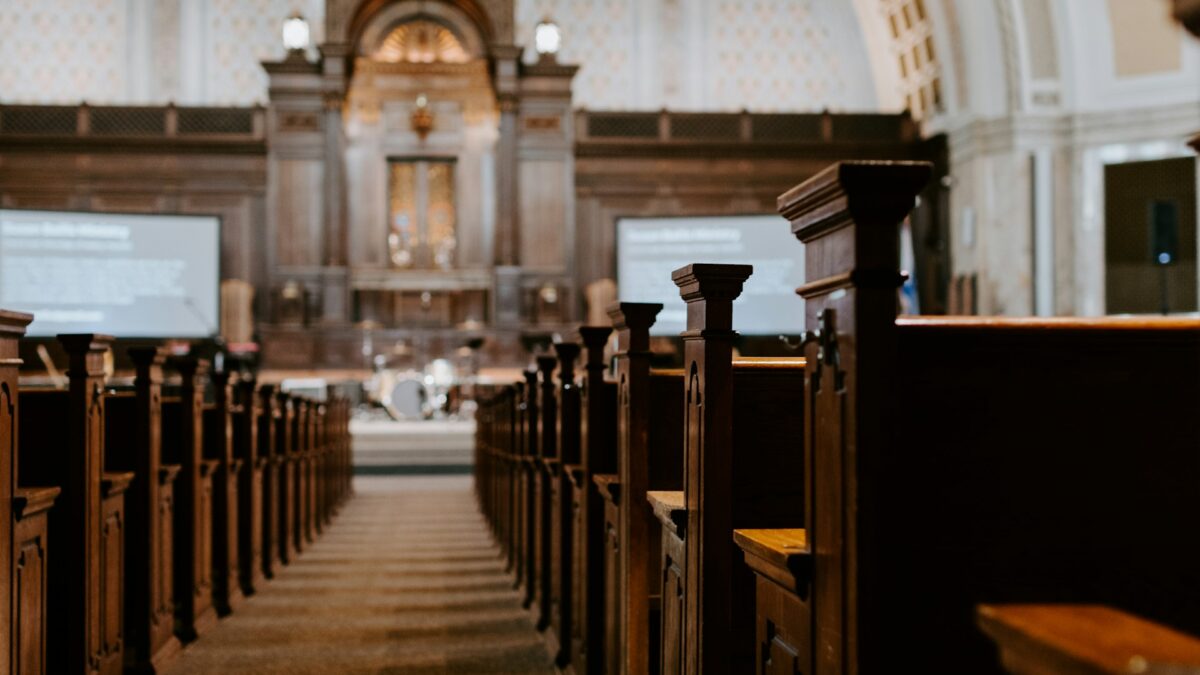 |
| Kelly Sikkema/Unsplash |
A Harris-Walz Administration would thrust intrusive, expensive, and time-consuming lawsuits on religious organizations
Among the first search results for Kamala Harris’ position on religious liberties, one will find her commitment to the First Amendment, but curiously, it is tied to “reproductive freedom.”
“As extremists work to take away the freedom of women to make decisions about their own bodies, faith leaders are taking a stand, knowing one does not have to abandon their faith or deeply held religious beliefs to agree that a woman should have the ability to make decisions about her own body and not have her government tell her what to do,” writes an MSNBC religion contributor.
With such a deficient view of what religious liberty means, it is not surprising that this administration has sought to limit the rights of religious organizations, and has enabled and encouraged intrusive and costly litigation against them. A Harris-Walz Administration will only further harm religious liberties in this country.
For many years, I have worked with the Becket Fund For Religious Liberty to have the courts recognize the true scope of the ministerial exception that is critical to the functioning of religious institutions. In 2012, in Hosanna-Tabor Evangelical Lutheran Church & Sch. v. E.E.O.C, the Supreme Court held that a ministerial exception protects churches’ autonomy to select and control key religious personnel. In 2020, in Our Lady of Guadalupe Sch. v. Morrissey-Berru, the Supreme Court rooted this commitment to religious autonomy in the First Amendment’s protection of “the right of religious institutions to decide for themselves, free from state interference, matters of church government as well as those of faith and doctrine.”
Representing law professors whose specialty is history of the Religion clauses, we filed amicus briefs in several circuits, with courts citing our briefing and professors’ writings, and in the Supreme Court in Our Lady of Guadalupe. Subsequently, we submitted an amicus brief and our view prevailed in the en banc Seventh Circuit, which held that “this constitutional protection applies to hostile work environment claims” as well.
The EEOC was on the wrong side in these cases. Though the EEOC is an independent agency, the president appoints (and can and did fire) its general counsel. In the first ministerial exception case, the Supreme Court rejected EEOC’s “remarkable view[s]” and “extreme position[s]” aimed at curtaining the Religion Clauses’ protection of religious employers. Yet again the EEOC filed an amicus brief in the Ninth Circuit against the Catholic school in Biel v. St. James School — the companion case to Our Lady of Guadalupe.
Only after the Our Lady of Guadalupe decision did the EEOC include the ministerial exception in its guidance regarding religious discrimination. The manual instructs its staff to “resolv[e]” church autonomy questions “at the earliest possible stage before reaching [an] underlying discrimination claim.” EEOC Compliance Manual § 12-I.C.2 (2021). Notably, the manual cites both the Supreme Court cases and the circuit cases in which we won.
Did the Biden-Harris administration heed its own guidance that the ministerial exception issues should be resolved “at the earliest possible stage?” In Garrick v. Moody Bible Institute, after a former instructor obtained a right to sue letter from the EEOC, she sued the college under Title VII. The college argued that her claims were actually for discrimination based on religious beliefs, and that the college’s First Amendment defense should be adjudicated before intrusive and expensive discovery. The EEOC filed an amicus brief in the Seventh Circuit, advocating for dismissal of the college’s appeal, instead of supporting it, as its manual advises. Unfortunately, the Seventh Circuit agreed with the EEOC. --->READ MORE HERE
If you like what you see, please "Like" and/or Follow us on FACEBOOK here, GETTR here, and TWITTER here.

No comments:
Post a Comment